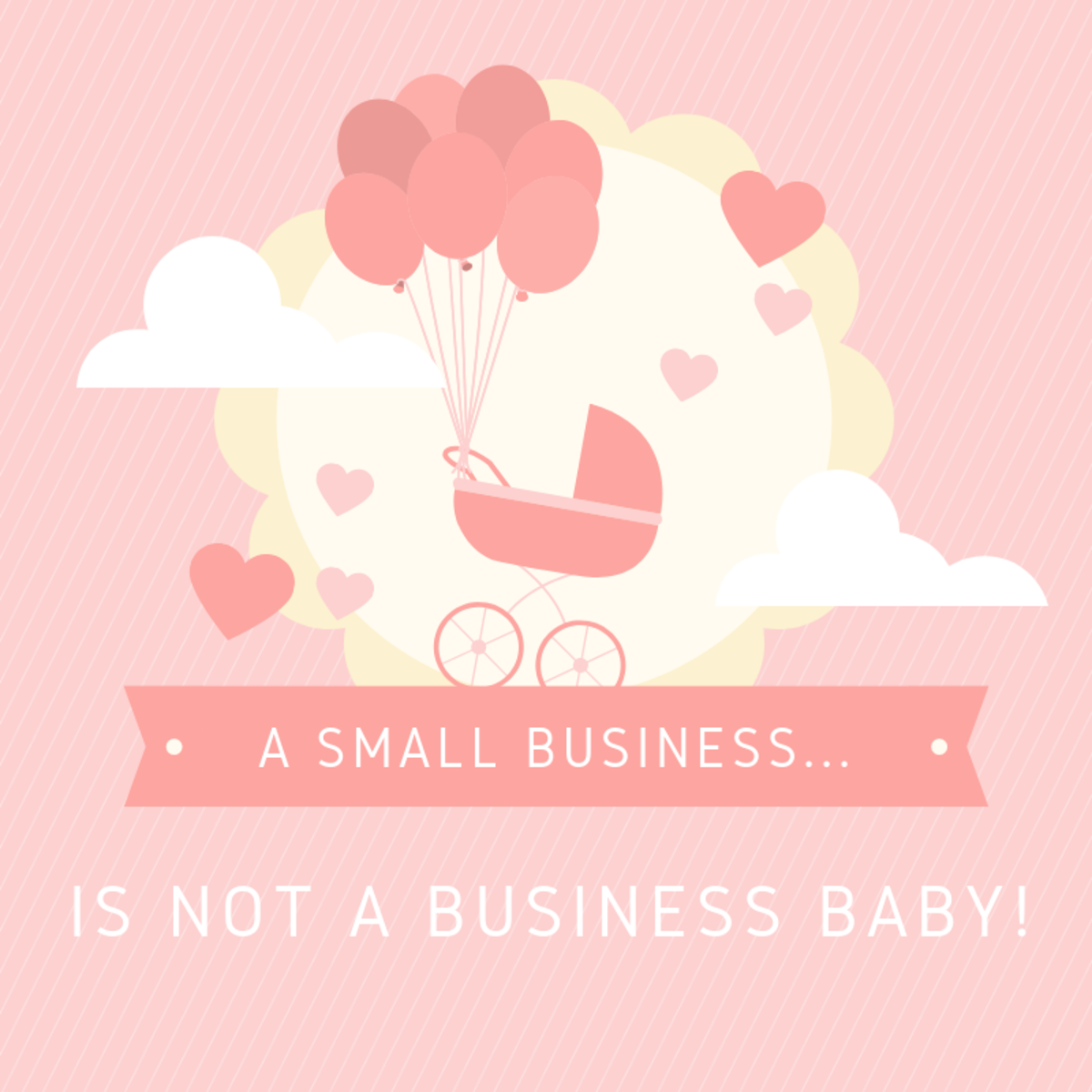Start up mistakes | How not to run a small business
10 Start up business mistakes to avoid
Start up is a lovely word! Many of us dream of starting a (small) business - more flamboyantly, called a start up. Of course when we start up we don't think of common small business mistakes. A small business can be a wonderful idea. A small business provides a great vehicle to really bring out the capability and talent inherent in a person. Creating and providing a product or service that really interests us can give us a level of satisfaction that may be difficult to attain in even a highly paid corporate job. A successful small business can also be financially rewarding and provide us with an incredible sense of independence. However small business mistakes can often be the undoing of the best laid plans.
Hence don’t overlook the flipside. Statistics show that a large number of small businesses fail within the first year itself. Some of them struggle for many years before they even see a dime of profit. Common small business mistakes lead to devastating failures. A small business calls for unending hours of hard work – and a lot of it in support areas (like accounting, reporting and housekeeping) not even directly connected with your core product or service. Here are some common small business mistakes many small businesses make that you should try to avoid. They are mostly very basic and obvious, yet they are commonly made mistakes. As they say, A wise man learns from other people’s mistakes...
So what are the tips on starting a small business. Avoid these common small business mistakes!
Here are some small business mistakes you should avoid:
1. Not thinking well before you start
You have a dream idea. Think well and think again. Is a small business really for you. Can you afford to forego a steady paycheck each month, however boring the job? Do you have a really great idea for a product or service and/or are you really passionate about it? Do you have it in you to spend long hours making it work? Can you afford to fail? Do you have or can you raise the capital investment required? Can you wait it out until you see profits?
Should I Start A Small Business
2. Not having sufficient domain knowledge
It is always better for you to have as good knowledge as possible about your product or service. Yes, you can and should hire competent people and consult with experts but it is a mistake to be unaware of the domain. It is important to be passionate about the product but you should also know well how to make it. If you do not, you will not be able to deal well with suppliers, employees, prospective hires etc.
3. Not hiring the right people
Recruiting an employee may well be one of the most important decisions you make. While this is the case in all businesses, it is more particularly so in small businesses because – i) Being small you have less room for mistakes and it is more difficult to recover from one, ii) If 1 or 2 out of several hundred employees in a big business don’t perform it may cause less damage then 1 or 2 out of 3 or 4 employees in a small business.
You must always try to choose a right fit. This is important for both the employee and you to be happy. Working for a small business if different than working for a large corporation. On the positive side an employee in a small business often gets a much more interesting palette of job functions and can be exposed to different and multiple range of work making it more interesting and adding to his personal development. This is because in a small business often there are no narrowly defined boundaries and departments and employees often have to fulfill multiple roles. This may be very interesting to some employees and they may be a good fit. However some prefer the more structured work environment of a large organization and may also be too well accustomed to secretarial and support services as well as many perks they may not get in a small business.
It is important to define the job function of the prospective employee and discuss very clearly what your mutual expectations are to avoid disappointment.
4. Not starting with the right capital investment
Small businesses can suffer from having too little or sometimes too much starting capital. Many successful small ventures started frugally and watched the pennies carefully and grew. Stories are legend about start-ups that started from the garage with nominal starting capital. Indeed, in these days of internet businesses it is possible to start with very little, but it is a mistake to under-estimate your capital requirements. Many small companies run out of their starting capital faster then they think and often get into huge debt that becomes difficult to recover from. Entrepreneurs often under-estimate expenditure involved in running a business. Often revenues take longer to come in than we think and when they do come, are much lesser than we thought.
Do estimate well the costs of running your business – apart from the basic raw materials - rents, electricity, staff salaries, office supplies, marketing costs, recruitment costs, legal and accounting fees, advertising expenses etc to name a few. Also the initial investments in rent deposits, purchase of equipment, machinery if required etc. After how many months will you start getting revenues? When will you break even? Consider all these and arrive at the capital you need to start. Be very conservative – plan for every possible expense and be conservative in your revenue projection. Try and start with the right amount of capital. Try to reduce the risks by generating cash flow early on.
Can you have too much capital? Yes, you can. Remember capital has a cost. If it is borrowed money, this is the interest you pay on it. Even if it is your own money, it is the return you might have other-wise got on it. Businesses that have too much capital available may not be able to manage their expenses well. Whereas, if you have to watch every penny, your expenses will probably be more under control. Perhaps that is why it has been observed that many companies that were founded in times of recession thrived and prospered.
5. Not generating cash flow early
You have a great business idea for a product or service. How soon can you expect revenues from it? If it is a product it may take significant time before it is developed, tested, launched and you start getting revenues from it. A service of course may take lesser time to generate cash flow. Of course the risks and potential rewards are usually much greater in a product business. But either way it may be quite a while before your key product or service is launched and marketed. Do consider alternate sources of revenue generation that can bring you sales and cash flow immediately. Perhaps you can provide some vanilla services even at small margins. Perhaps you can resell other products or services. Maybe you can take up some simple outsourced jobs of bigger organizations. Even if these projects are not too interesting and yield low margins they are very useful to generate cash in the initial period and keep your business running until you are ready with the ‘big thing.’ Many of us are so passionate about our ‘break-through’ new product or service that we sometimes lose track of this. ‘Cash is king,’ is often quoted, this is particularly true for small ventures that have little back-up. Investors may come fast and go fast, loans will be on offer when the going is good, often not when otherwise, but nothing can substitute cash in the bank generated by sales. This is particularly true in these times of recession.
6. Not studying the market well
Yes, you have a great new product or service, but is there a market for it at the price you are selling and are you equipped to tap it? Sometimes we get so wrapped up in our great new product that we fail to ask ourselves a basic question like – does our offering solve a problem, or satisfy an aspiration? Do study the market well, do analyze how your product can be differentiated from others. Do a test marketing exercise on a small scale or if feasible with a prototype product.
7. Not having a good accounting and reporting system
It is very important to have an excellent accounting system right from day one. This is an often overlooked but critical part of business. If you do not have much accounting knowledge do get at least some basic knowledge. While you can hire an accountant part or full time it is very important that you are comfortable with the system and with the accounting numbers. Keeping track of simple things like expenses, payables and receivables may be easy for the first few days/weeks but very soon when transactions become more you will find it difficult without a good system. And if you are not on top of these your business may soon be in trouble. Similarly do ensure that your periodic tax returns/payments etc to local or central government authorities are made correctly and well in time. Slippages in this can cause lot of trouble for your business. Remember, even if you do slip up taxing authorities will get to you sooner or later; and when it is later it will be much more expensive and time consuming. Anyway you want to be a responsible (corporate) citizen and discharge your responsibilities in time.
8. Not managing your cash flow well
Cash flow should not be confused with profits. Managing cash flow is critical for any business. An organization may be profitable but still may not have cash to pay the bills, for example it may huge amounts locked in receivables or inventory. Manage your cash flow minutely. Analyze all expenses. Collect your receivables early. Where required and desirable provide cash discounts so that you can sell on cash without credit. Plan and forecast inventory needs well so that you do not carry excess inventory.
9. Not being hands-on
This actually doesn’t happen too often. Usually small business owners are too hands-on. But it does happen and it may be a mistake. Sometimes too much is delegated by an entrepreneur and he is not on top of the situation. This may not be good because a small business often does not have very good systems and a lot of knowledge is locked in the head of one or two key employees. This may be a problem if they leave and no body knows what to do. Hence while it is good to delegate it is important to be well in the know of things.
10. Being too hands-on
While it may be good to be hands-on, when a business grows this may be difficult. If everything has to be done by the owner and nobody else is allowed to take any decisions it may hamper growth. Do delegate, do build up competencies in executives but do follow-up well and consistently.
Of course there would be many more than just 10 small business mistakes. However these are fairly common ones, and avoiding these common business mistakes would perhaps make it easier to succeed.
Disclaimer: The above article only represents the personal views of the author, who doesn't claim to be an expert in this field. This is in no way a subsititute for professional legal, business or accounting advise. You should take advise from a qualified professional when required. The author disclaims specifically any responsibility for any action or decision taken on the basis of this article.









